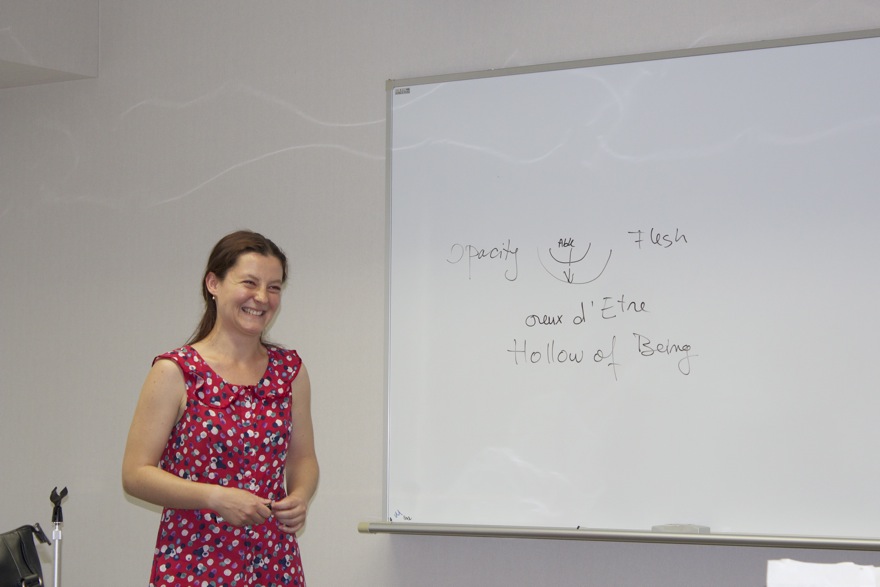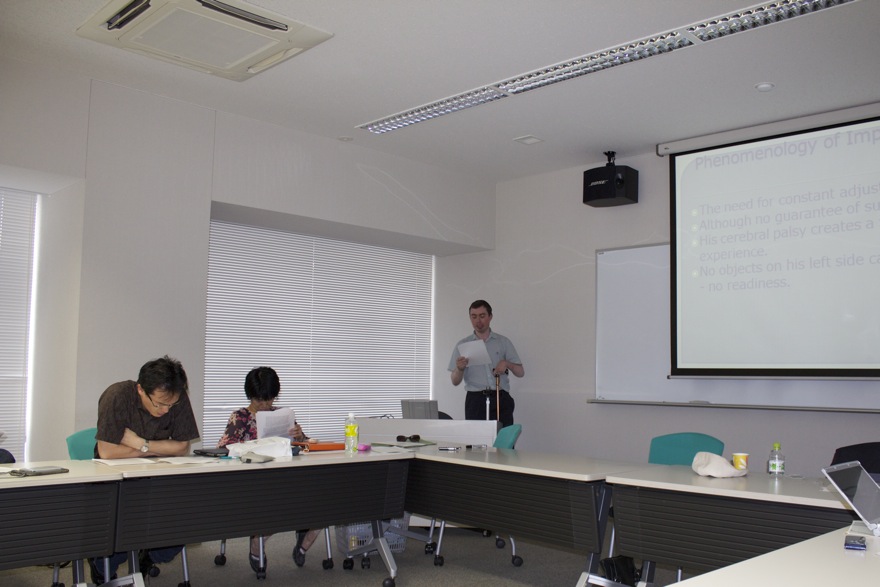[Report] The 7th Meeting of the Study Group “Philosophy of Disability and Co-existence”: Phenomenology of Disability
On Saturday 6th of October 2012, the 7th Meeting of the Study Group “Philosophy of Disability and Co-existence” on ‘Phenomenology of Disability’ was held.
Dr Denisa Butnaru, Assistant Researcher at Augsburg University, Germany gave a talk entitled ‘Phenomenology of Body Disability and the Logos of Life’. Dr Butnaru’s presentation was concerned with the question of meaning in the work of Maurice Merleau-Ponty. She argued that despite Merleau-Ponty’s status within the history of phenomenology, as the most important philosopher of the body; it is difficult to see how his analysis of body can help give an adequate account of disability, particularly with regards to the issue of the meaning of embodiment. How can meaning be transcribed by a “broken body”, by an immobile body or by a body that escapes control as it is the case in cerebral palsy? These questions are not only an inquiry into the status of the body, on the “body schema” (Merleau-Ponty, 1945: 114) of the persons with disabilities, but on the subject’s life and on how her/his body is lived.

Dr Butnaru developed an inquiry on how the subject’s lived experience is reframed and constructed as meaningful within the boundaries of a dysfunctional body and spoke of her future hopes that her project shall focus on the retraction of the body intentionality and on the disabled body conceived not anymore in terms of an alternative “logic of the world” but as a possibility in itself that challenges the prospect for a “logic of life”.

The second speaker, Dr Michael Gillan Peckitt of the University of Hull, UK and a visiting fellow at the University of Tokyo gave a talk entitled ‘Between Two Worlds: A Phenomenological Critique of the Medical and Social Models of Disability’. Based on his own experiences of cerebral palsy, he argued that research into disability, being guided by two models, the social model and the model medical, is doomed to failure, unless appropriate attention is paid to the phenomenology of disability. Whilst Dr Peckitt conceded that both models have been useful, since both ignore crucial aspects of disability, both ultimately fail to provide an accurate picture of disability. Using the phenomenology of Merleau-Ponty, and drawing upon the work of the neurologist Prof. Jonathan Cole, he presented a phenomenological description of two people with cerebral palsy (one of these was himself), an umbrella term for a condition which affects people in entirely different ways. By presenting such a phenomenology, he aimed to show that phenomenology may offer a third way of understanding disability, that can take the best of the social and the medical models and arrive at a more accurate depiction of disability.
(Report: Minae Inahara)






